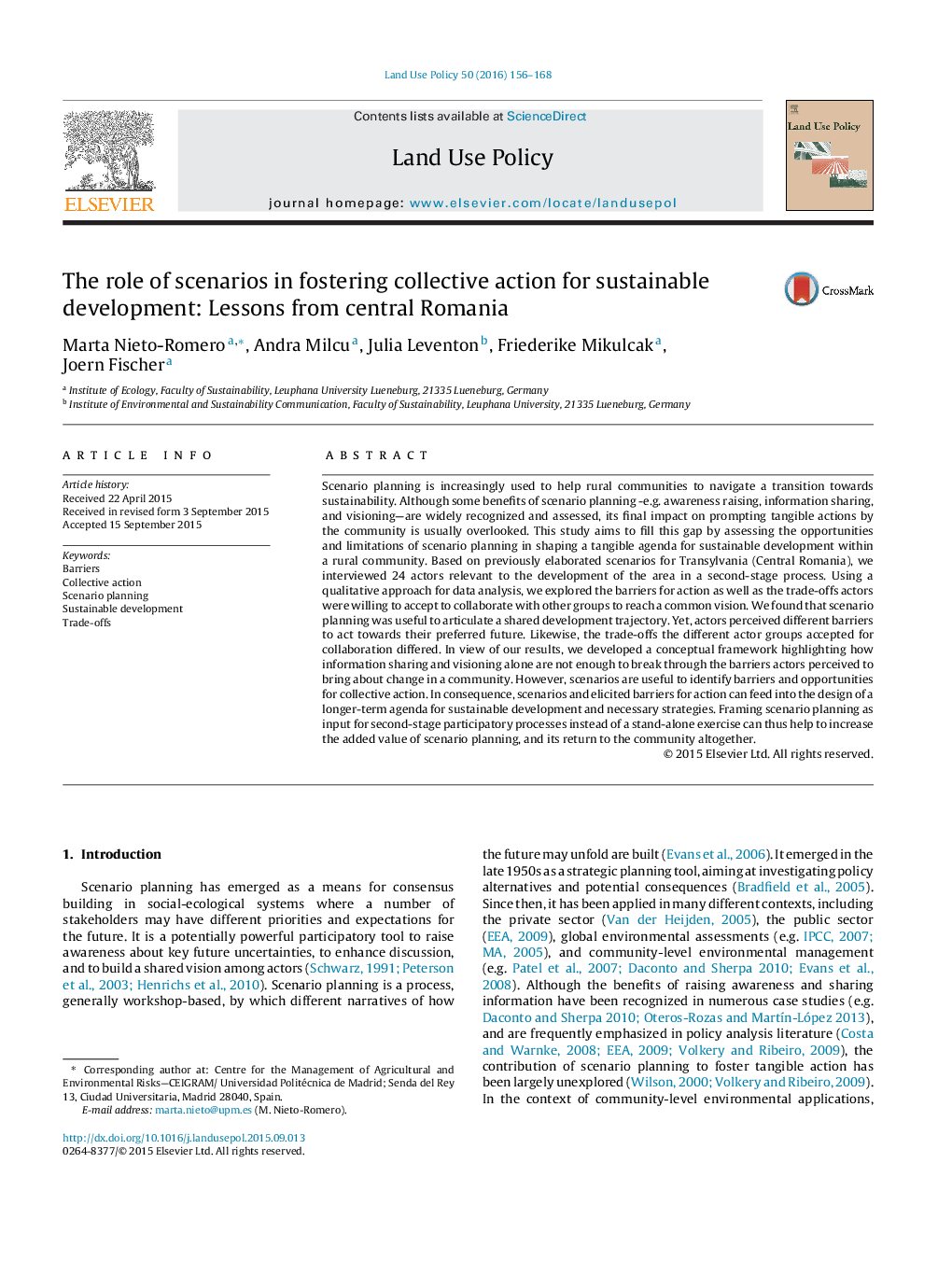| کد مقاله | کد نشریه | سال انتشار | مقاله انگلیسی | نسخه تمام متن |
|---|---|---|---|---|
| 6547583 | 160095 | 2016 | 13 صفحه PDF | دانلود رایگان |
عنوان انگلیسی مقاله ISI
The role of scenarios in fostering collective action for sustainable development: Lessons from central Romania
ترجمه فارسی عنوان
نقش سناریوها در تقویت اقدام جمعی برای توسعه پایدار: درسهای مرکز رومانی
دانلود مقاله + سفارش ترجمه
دانلود مقاله ISI انگلیسی
رایگان برای ایرانیان
کلمات کلیدی
موانع، اقدام جمعی، برنامه ریزی سناریو، توسعه پایدار، تعطیلات،
موضوعات مرتبط
علوم زیستی و بیوفناوری
علوم کشاورزی و بیولوژیک
جنگلداری
چکیده انگلیسی
Scenario planning is increasingly used to help rural communities to navigate a transition towards sustainability. Although some benefits of scenario planning -e.g. awareness raising, information sharing, and visioning-are widely recognized and assessed, its final impact on prompting tangible actions by the community is usually overlooked. This study aims to fill this gap by assessing the opportunities and limitations of scenario planning in shaping a tangible agenda for sustainable development within a rural community. Based on previously elaborated scenarios for Transylvania (Central Romania), we interviewed 24 actors relevant to the development of the area in a second-stage process. Using a qualitative approach for data analysis, we explored the barriers for action as well as the trade-offs actors were willing to accept to collaborate with other groups to reach a common vision. We found that scenario planning was useful to articulate a shared development trajectory. Yet, actors perceived different barriers to act towards their preferred future. Likewise, the trade-offs the different actor groups accepted for collaboration differed. In view of our results, we developed a conceptual framework highlighting how information sharing and visioning alone are not enough to break through the barriers actors perceived to bring about change in a community. However, scenarios are useful to identify barriers and opportunities for collective action. In consequence, scenarios and elicited barriers for action can feed into the design of a longer-term agenda for sustainable development and necessary strategies. Framing scenario planning as input for second-stage participatory processes instead of a stand-alone exercise can thus help to increase the added value of scenario planning, and its return to the community altogether.
ناشر
Database: Elsevier - ScienceDirect (ساینس دایرکت)
Journal: Land Use Policy - Volume 50, January 2016, Pages 156-168
Journal: Land Use Policy - Volume 50, January 2016, Pages 156-168
نویسندگان
Marta Nieto-Romero, Andra Milcu, Julia Leventon, Friederike Mikulcak, Joern Fischer,
